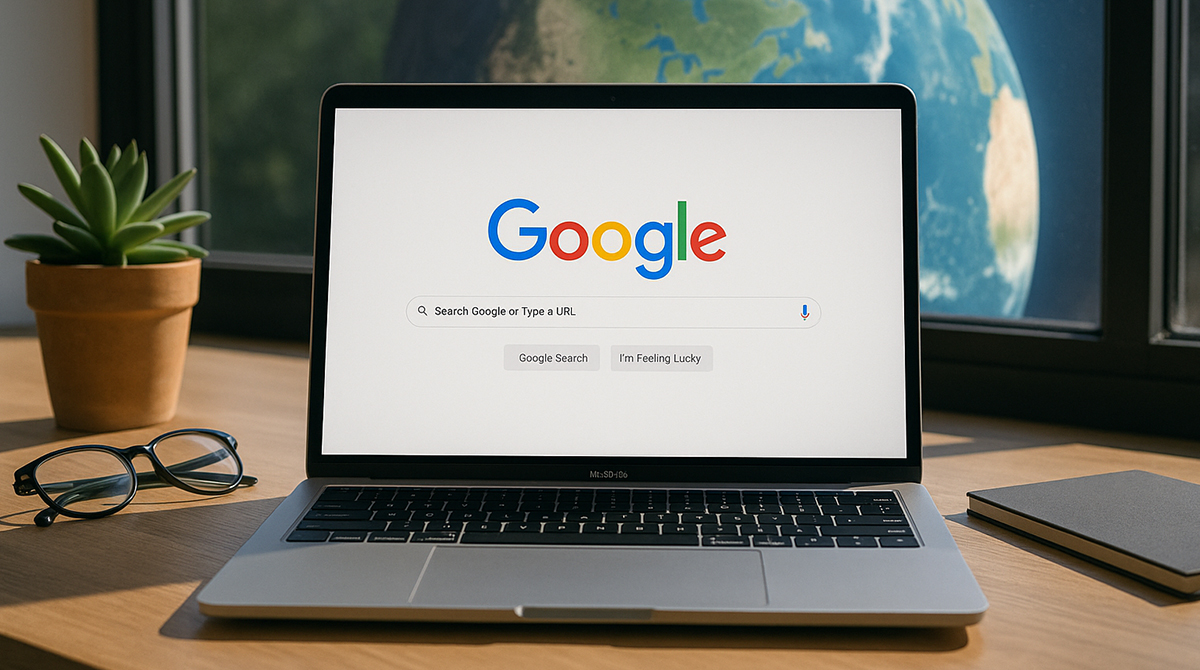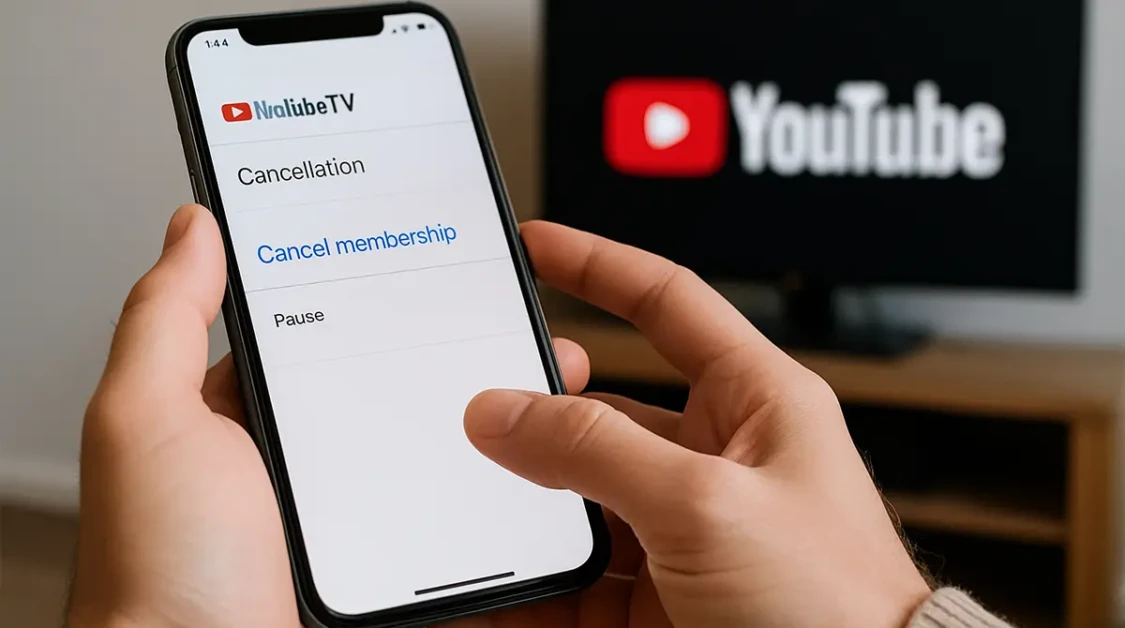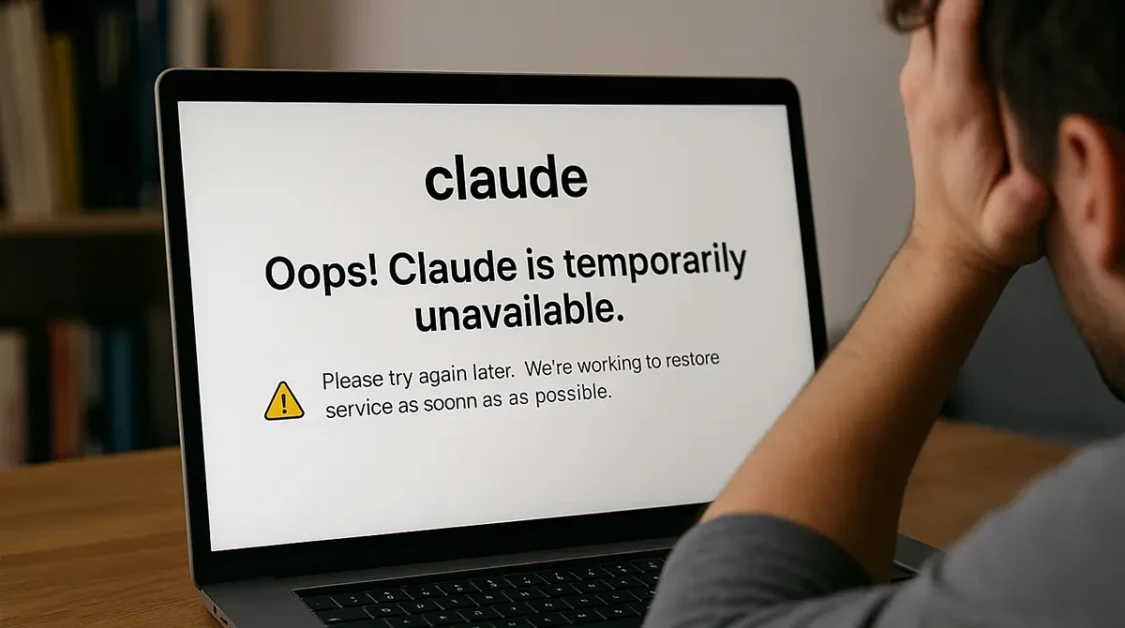When people ask, “What is Google?”, the answer already spans more than a search box. Google began as a research experiment in a dorm room and grew into a verb, a global economic engine, and the lens through which billions interpret the internet. This article traces Google’s history, examines its growth over the years, and explores the monumental global impact of Google that makes it impossible to separate modern life from Mountain View’s code.
The First Spark: Introduction to Google
It started in 1996. Stanford Ph.D. candidates Larry Page and Sergey Brin wanted a better way to organise the web’s chaotic explosion of information. Their BackRub project measured web link relationships, giving birth to PageRank and a more democratic way to rank results. By 1998, Andy Bechtolsheim wrote a $100,000 cheque to Google Inc. before the corporation legally existed. A Menlo Park garage became headquarters.
The early interface stunned visitors with its stark minimalism—white page, primary-coloured logo, and a single search bar. It loaded fast on a 28.8 kbps modem, an intentional trade-off that signalled respect for user time. Word-of-mouth grew rapidly among academics, journalists, and the emerging tech press, sparking an introduction to Google that felt more like a cult invitation than a corporate pitch.
- Domain registered: 15 September 1997
- Incorporation: 4 September 1998
- First patent filed: PageRank algorithm, March 1998
- Index size at IPO: 4.2 billion web pages
From day one the name itself, a play on the mathematical term “googol”, hinted at lofty aspirations. Few imagined how quickly those numbers would become reality.
From Garage to Giant: Google’s Growth Over the Years
Acceleration defines the timeline. What began as pure search branched into web mail, cloud computing, mobile operating systems, and hardware. Each move multiplied both reach and revenue.
The IPO and AdWords Explosion
August 2004 flung Google onto public markets at $85 per share, raising $1.9 billion and valuing the young firm at $23 billion. The same year, AdWords shifted from flat CPM to keyword auction pricing. Advertisers entered bidding wars for “mesothelioma lawyer” at $100 per click, proving the model lucrative and giving Google cash for every future experiment.
| Year | Milestone Product | Revenue Impact |
|---|---|---|
| 2001 | Image Search | Diversified ad inventory |
| 2004 | Gmail | Contextual display ads inside mail |
| 2005 | Maps & Earth | Location-targeted advertising |
| 2006 | YouTube acquisition | Video advertising giant |
| 2008 | Chrome Browser | Search default traffic leverage |
| 2012 | Knowledge Graph | Answer cards reduce exits, increase dwell |
| 2016 | Pixel Phone hardware | Vertical integration across stack |
After every launch, ad revenue climbed another rung, enabling the next moonshot, from self-driving cars at Waymo to quantum computing at the Quantum AI lab.
Algorithmic Evolution
Caffeine’s 2010 update rebuilt the indexing system for fresher content. Penguin and Panda swept search of spam, raising quality expectations for webmasters worldwide. Hummingbird (2013) parsed semantics; RankBrain (2015) added machine learning. Core Web Vitals in 2021 pushed every publisher to rethink site speed. Each iteration re-energised Google’s growth by reinforcing user trust.
Mobile and the Billion-User Ecosystem
Android launched in 2008 and now powers over 3 billion active devices. Google Search, Maps, Gmail, Chrome, Photos, Drive, and Play form a tower of free yet monetised services. These pillars accelerate data collection and ad targeting while keeping users locked to Gmail log-ins across devices. The effect compounds: one more Android activation equals one more signed-in user across every screen.
Diversification into AI, Cloud, and Hardware
Alphabet restructured Google in 2015, separating core search from speculative bets. DeepMind cracked protein-folding, Stadia dabbled in gaming, and Google Cloud Platform competed with AWS and Azure. Multiple revenue streams now hedge against the possibility that search ads might mature. In 2023, Cloud crossed a $32 billion run rate, confirming Google’s growth over the years has become an expanding universe, not a single point.
Shaping the World: Global Impact of Google
Search penetration has surpassed 90 % in most developed markets, but raw market share only scratches the surface. Google’s impact runs through culture, economies, access to knowledge, regulatory regimes, and even the English language itself.
Economic and Social Reach
Google’s ad network contributes an estimated $400 billion in annual economic activity globally, according to a 2022 AlphaBeta report. Small businesses in Lagos bid on keywords to reach buyers in London. YouTube creators in São Paulo earn more than traditional broadcast journalists, generating new careers and creative formats that never existed before.
The Democratisation of Information
Before 1998, digging up obscure facts required a physical library. Today, any smartphone with a 2G signal surfaces the same data once guarded by gatekeeping institutions. Teachers in rural India use Google Translate to supercharge multilingual classrooms. Doctors in Nigeria reference PubMed abstracts via Chrome on budget tablets. The global impact of Google here is less about technology itself and more about trust bestowed in its search result snippets.
Data, Privacy, and Regulatory Headwinds
Such reach inevitably triggers scrutiny. The EU fines for antitrust, the California Consumer Privacy Act, India’s Personal Data Protection Bill, and Brazil’s LGPD each illustrate governments grappling with a company that is part phone-maker, part ad tech monopolist, part gatekeeper to the world’s information. The fines cumulatively exceed 9 billion euros, yet each penalty felt like a billing line against a cash reserve that topped $157 billion in 2023.
Cultural Lexicon and Behavioural Shifts
The word “google” entered the Oxford English Dictionary as a verb in 2006. People “google” symptoms before visiting doctors, partners before dating, and recipes at 2 a.m. Video search on YouTube has become the default “how-to” manual for everything from replacing a faucet to mastering Python. Language has folded the brand into daily life, altering not only what we know but how we learn.
Case Studies: Real-World Outcomes
- Bella the Budgie: A Sydney pet owner googled bird seizures at midnight, found an after-hours avian vet via Maps reviews, and saved her budgie from lead poisoning.
- Leo the African Grey: A Kenyan university student landed a Google scholarship in 2019 and now leads the Nairobi Android developer community, mentoring 250 first-time coders every year.
- Ocean Cleanup Project: Used open-data tools like Earth Engine to crowdsource satellite imagery, applying machine-learning detection of ocean plastic debris across the North Pacific.
- Jakarta Flood Response: During 2020 monsoon flooding, Crisis Response messages on Search and Maps rerouted 250,000 commuters in real time, dramatically cutting rescue response windows.
A Double-Edged Treasure
Love it or fear its omnipresence, Google triggers the same baseline response—convenience that feels inevitable. Ask an advertising executive, a war-time humanitarian, a fifth-grade teacher, or a data-privacy activist; each answers the question “What is Google?” with slightly different emphasis yet identical urgency. One portal now underpins mapping, mobile software, email, video, and AI development across 190 countries.
Gazing Ahead: Google Beyond 2024
Products in test today hint at similar velocity. Search Generative Experience answers queries with AI-crafted summaries, potentially killing click-through for publishers yet delivering richer summaries for users. Bard competes with ChatGPT to reinvent how we interact with knowledge itself. Quantum chips may soon solve problems impossible on classical computers. Whether these milestones yield prosperity or fragility remains unknown, but precedent suggests Google will place another bold bet and see whether the world follows.
Twenty-five years ago a Stanford dorm room server named BackRub indexed 24 million pages and sparked a transformation few imagined. Today that number exceeds hundreds of billions; the dorm server became an empire, the students became multi-billionaires, and the planet’s pulse began to beat in milliseconds measured from Mountain View. Google isn’t merely software or hardware—it is the scaffolding on which modern life arranges information, commerce, and communication. Understanding what Google is reveals not only corporate biography but the architecture of the contemporary human experience itself.



